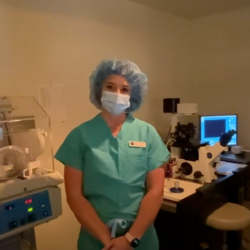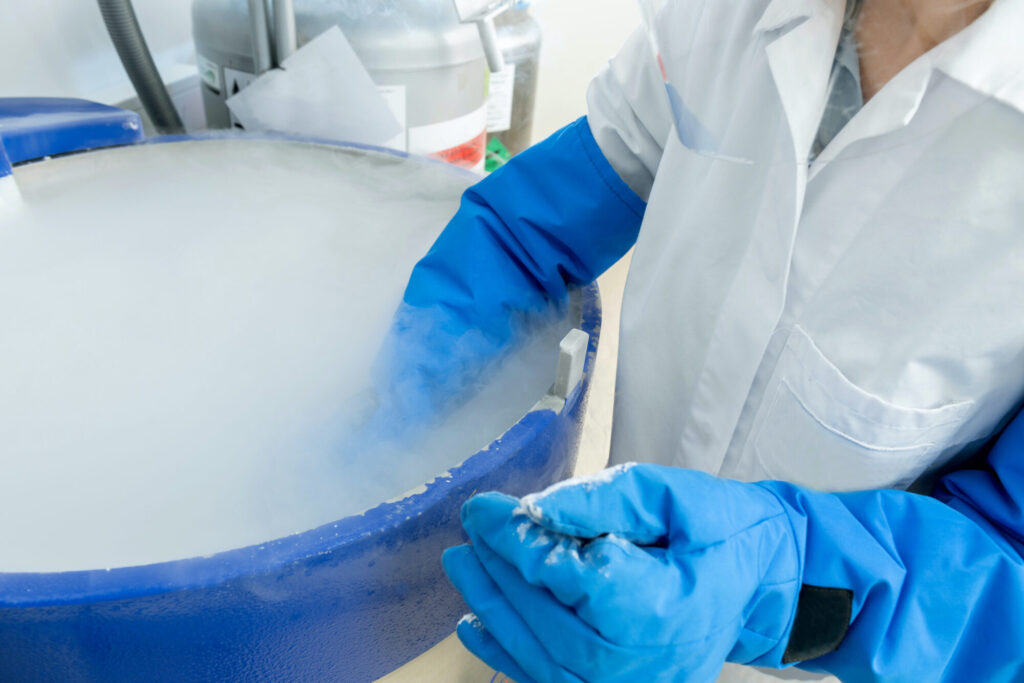
Egg (or oocyte) freezing is an option for any woman seeking to preserve her fertility. Women are born with a certain amount of eggs and over time the quantity and quality of her eggs will lessen. By freezing her eggs, a woman can plan for her future, preserving her eggs until she or she and her partner are ready to start a family.
The following are 5 myths we would like to dispel about egg freezing:
#1 Myth: Frozen eggs aren’t as effective as “fresh” eggs when you’re older
Even though many women think about egg freezing when they are younger, some wait until they are in their late 30’s or early 40’s to start the process. It is true that egg freezing is more likely to be successful for women under age 35, however many older women have had successful pregnancies. The most important factor when it comes to fertility is not your age, but the age of your eggs.
#2 Myth: The procedure for freezing eggs is dangerous
Ovarian stimulation and egg freezing does not cause harm to women or their potential future offspring. Several studies show that there is no evidence of increase in the risk of pregnancy complications, chromosomal anomalies, or birth defects when using frozen eggs compared to fresh eggs.
Here is how it works: First, we will give you a blood test and take a baseline ultrasound. Then you will give yourself hormone injections two to three times a day, returning every other day for additional ultrasounds. After about two weeks, depending on your body’s response to the hormones, you will undergo the egg retrieval process. While you’re sedated, your doctor will insert a long needle into your vagina to retrieve the eggs. After the egg retrieval procedure, you may experience some abdominal pain (similar to menstrual cramps). Most women can resume their normal activities the day after the egg retrieval.
#3 Myth: Egg Freezing is covered by insurance
It is typical for most insurance providers not to cover any part of egg freezing. The cost of the procedure is approximately 15 thousand dollars. There is also an annual fee to store the frozen eggs.
At The Fertility Institute, we have partnered with ARC Fertility which offers affordable treatment packages, financing programs, and convenient pharmacy plans. Call us today to discuss your options!
#4 Myth: Freezing your eggs pretty much guarantees you will get pregnant later
Many women think that freezing eggs is a guarantee that they will be able to get pregnant. Achieving pregnancy is entirely dependent on the quality of the eggs that are frozen. Egg freezing provides you with a chance at a pregnancy in the future. There is no guarantee that your fresh or frozen eggs will result in a baby.
#5 Myth – The procedure for freezing eggs is the same everywhere.
This is not true. There are variations in laboratory techniques that make some IVF laboratories more successful at freezing and thawing these eggs than others. At The Fertility Institute, the doctors at our IVF center have years of experience freezing eggs and access to the latest technology. We have also had babies born from eggs that we have frozen.
Call us to set up an appointment today and we will be happy to discuss your options. We will be happy to explain the full procedure so that you can determine if freezing your eggs is the right choice for you.



